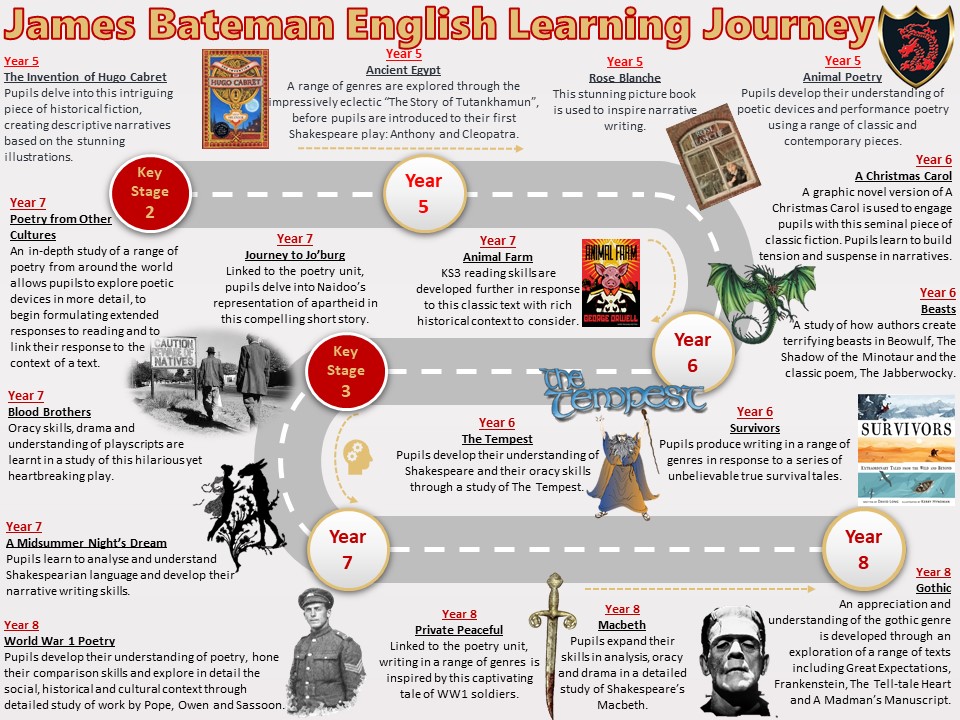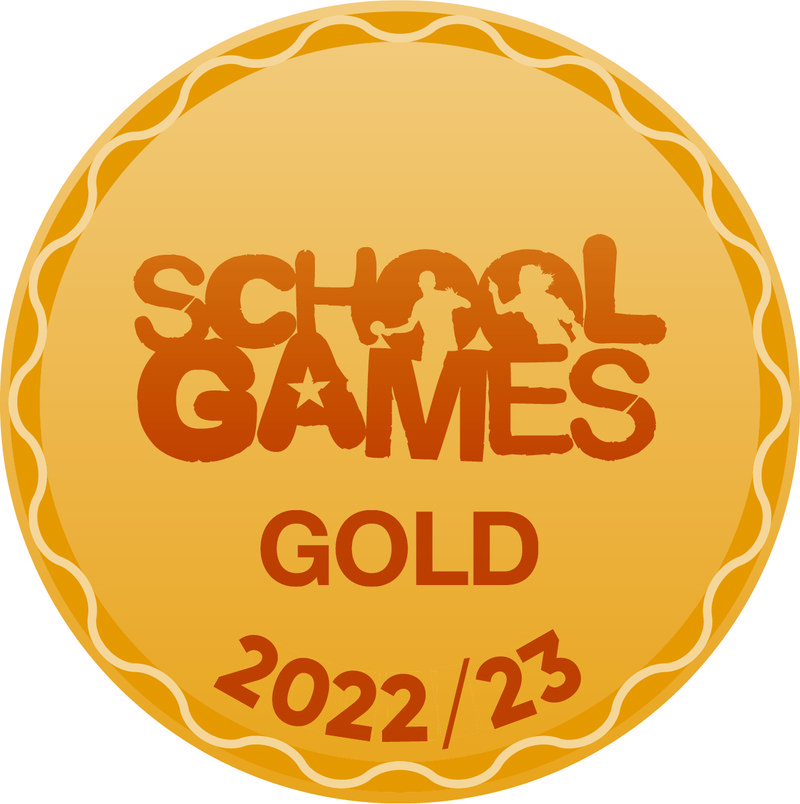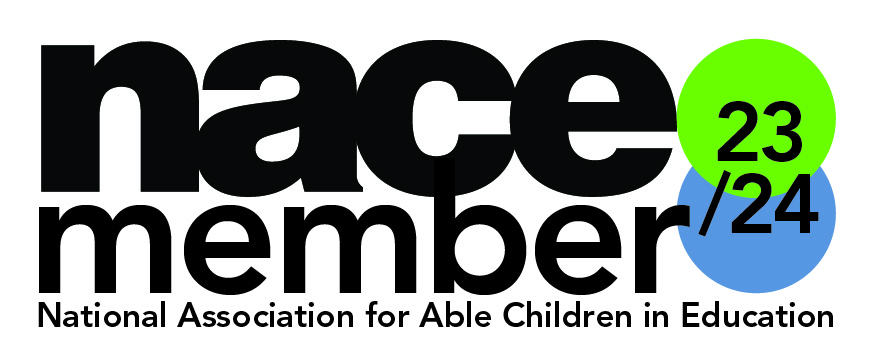English
Curriculum Intent
The curriculum at James Bateman is rich in knowledge.
James Bateman Middle School provides opportunities for all our pupils through our curriculum and wider educational opportunities. Our intent is to ensure that all pupils make outstanding progress and that our curriculum will remove any barriers that may affect their learning.
Subject-specifically, the English curriculum’s intent is to empower: the ability to read and to communicate effectively empowers our students not only to achieve across the curriculum, but to succeed in life beyond the classroom. The curriculum is built around a progression model that ensures pupils incrementally gain deep knowledge and skills that are fundamental to each subject. Purposeful assessment is integral to the curriculum to ensure knowledge is fully embedded and highlights areas for development.
Throughout the curriculum there is a strong emphasis on developing;
- a ‘love of learning’.
- readiness, resilience and respectfulness: the skills required to be a productive member a diverse 21st century society
- an understanding of ‘British Values’ and the implications for life in modern day Britain.
- pupils spiritual, moral, social and cultural learning.
- independence and enabling pupils to become creative, critical thinkers.
- an understanding of the importance, through the careers programme, of the opportunities available to pupils once they leave school.
At the heart of the school is the focus on broadening pupils’ cultural horizons to ensure they are able to continue to the next stage of their educational journey.
Implementation
Writing is taught using many elements of The Write Stuff approach, which not only meets English National Curriculum standards but exceeds them. The approach encourages grammar to be taught in context wherever possible, providing students with the opportunity to apply their knowledge in real time. The ‘Writing Rainbow’ is used across all year groups, providing a scaffold upon which to hang new learning as well as enabling skills to be regularly revisited and refined. Writing is regularly ‘published’ in students’ Weaving Magic Into Writing book, which encourages pupils to take great pride in their writing and to strive for excellence. Assessment takes place fluidly throughout the year against a framework which has been produced in line with End of Key Stage assessment frameworks and AQA mark schemes.
Reading is taught whole-class across the school. We follow a carefully sequenced text-based learning approach and include a range of narrative, non-fiction, poetry and plays to engage and inspire our students. In KS2, reading lessons focus on one or more of the VIPERS skills; in KS3, students are supported to analyse texts in great detail and to develop the skills required for GCSE. Teachers use high-quality pedagogy to support, adapt and scaffold activities to address the needs of all students. Each week, all students have a scheduled lesson in our well-stocked library to promote reading for pleasure. We use Accelerated Reader to track and encourage reading for pleasure and provide a myriad of rewards to celebrate students’ achievements.
Impact
Ready, resilient, respectful
Students are given opportunities to develop their collaborative and independent skills alongside being empathetic and recognising the achievement of others. Many of our texts are carefully chosen to inspire deep thought and discussion on a wide range of issues including poverty, race, mental health and war, which encourages empathy, inclusion and respect for all.
Evidence of knowledge/skills
Assessment of student’s learning in English is an ongoing monitoring of student’s understanding, knowledge and skills by the class teacher, throughout lessons and by way of an end of unit tasks or assessments.
Student voice Students will demonstrate a positive attitude towards English learning. They will articulate their understanding during review and retrieval of learning.
Click here to view the Autumn 1 term Knowledge Organisers







